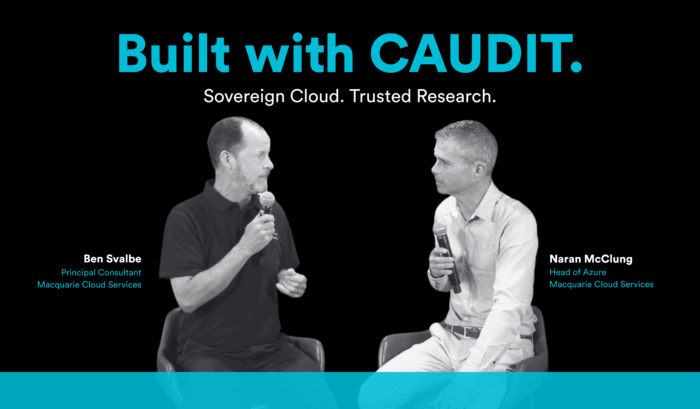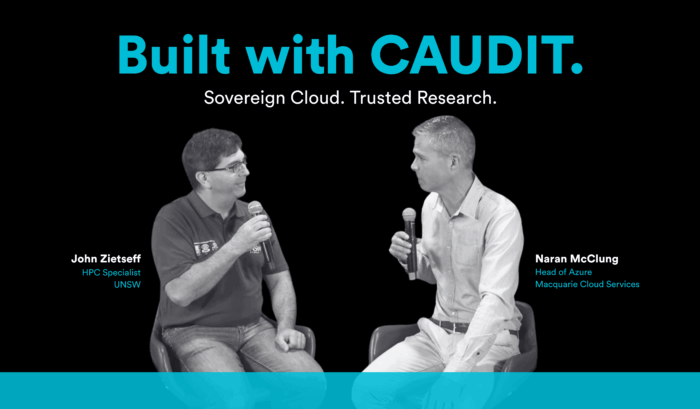Is Cloud Hosting Right For You? Here’s What You Actually Need to Know

Cloud hosting has gone from paradigm change to business-as-usual, and with the advent of public cloud, has become accessible to everyone.
Its widely accepted today that cloud hosting is the gold standard for any workload that isn’t literally bolted down, however for those of you just coming out of long term hardware refresh cycles assessing your options, what does it actually offer, and is it right for you?
Whether you’re a sysadmin, IT manager, or CTO, this guide will tell you what matters, minus the jargon.
What is Cloud Hosting (And How Does It Actually Work)?
Think of cloud hosting as a convenient way to lower your commercial risk and free yourself up from worrying about hardware failures (among heaps of other benefits).
Historically in your procurement cycle, you’ll make a CAPEX decision for the next 5-6 years, hoping the business landscape doesn’t change much.
With cloud hosting, you remove the anxiety around trying to predict the future , only paying for what you use, and being able to scale at a moment’s notice.
- Traditional hosting? You purchase hardware in a big bang. All your stuff sits on a single server in a rack somewhere. If it goes down, everything goes with it. You wait in the support phone queue while big business cuts to the front.
- Cloud hosting? You pay a smaller fee monthly. Your stuff lives across multiple diverse, redundant platforms. If one part fails, you’re not impacted. Specialists maintain the environment with on-site hot spares, and engage their top tier vendor relationship for a quick support outcome.
What are the main reasons we see customers move to cloud environments?
The Benefits of Cloud Hosting (vs. Traditional Hosting).
- Economies of Scale – cloud providers are able to purchase and manage in bulk, passing on these discounts to you. Theyre able to scale up and provide massive amounts of resources to you in seconds that would have taken you months to procure traditionally.
When you’re looking for a cloud provider, look for multi-zone availability, fault-tolerant infrastructure, and reporting tools. Ask for the numbers; don’t accept vague promises.
- Reduction of Risk – hardware failures are no longer your concern. Forecasting ammortisation 6 years into the future being wrecked after a surprise project is a thing of the past with pay-as-you-go consumption.
- Cost Saving – not having to worry about dedicated floor space in your office, power, cooling, security, support contracts, and all the other cloud benefits means you save on costs if you were to DIY.
- Curated Platform – why suffer the headache of racking, stacking, and managing physical boxes when a managed services cloud provider automated that years ago? Dedicated specialists constantly improve the platform and remediate incidents meaning you get to focus on improving your business. If reliability matters to you (read: it always should), this is a game-changer.
Real-life test: Macquarie Cloud Services hosts data for over 40% of Australia’s federal government agencies, thanks in part to our track record of high reliability and ironclad uptime.
- Built-In Security – Cloud environments typically come with in-built security like firewalls, access control lists, granular access permissions, multi-factor authentication, etc. As a rule, a good cloud services provider also have physical security such as 24×7 on-site guards, fingerprint scanners, ID cards, access procedures, etc.
Real-life test: In addition to 24×7 on-site security, Macquarie Cloud Services boasts over 150+ NV1 security cleared engineers.
- Access to Expertise – a good managed services cloud provider will have a team of experts at their fingertips. A great managed services cloud provider will put them in front of you to help take your business where you want it to go.
- Compliance – Top cloud server hosting companies comply with key standards like ISO 27001 and PCI DSS. More and more stringent enforcement of compliance means that traditional hosting is just not good enough. For industries like finance, healthcare or education, adhering to compliance is no longer negotiable.
Noticed something all these points have in common? Most small businesses would struggle to afford this kind of set-up in-house. With the right provider, you get big business level capability on a start-up budget.
Is Cloud Hosting Suitable For Small Businesses?
Short answer? Yes.
Long answer? Yes, when done with a trusted partner:
- Start small, scale fast: Launch small and pay only for what you use. Add users, apps or storage as your business grows. A trusted cloud services partner will help size your environment and squeeze value out of every dollar.
- No big upfront investments: Forget buying racks, uninterruptible power supplies, and all the other hardware headaches you’ll need to run forever to ammortise down.
- Less IT firefighting: The provider handles maintenance and updates, so you don’t need a dedicated internal IT team (unless you want one!).
- Access everywhere: Your team can access key systems and data from home, the office, or the beach.
Case in point: When the eCorner team switched to cloud server hosting, they were worried about change. Once they made the leap, uptime and performance improved, headaches vanished, and tech teams became fans of the new system. Read eCorner’s story.
How To Choose The Best Cloud Hosting Provider (For You)
Not all cloud server hosting providers are created equal. Here’s how to separate the best from the rest:
Performance & Reliability
- Ask about uptime guarantees: 99.99% is industry standard for mission-critical apps.
- Check performance metrics: Can they prove consistent speeds and quick response times under load?
- Multi-zone capability: Providers with multiple availability zones offer better redundancy if one “zone” fails.
Security & Compliance
- Make sure you know what is included: Not all solutions come with security built-in. Your provider should offer advanced firewalls, encryption, 24/7 monitoring, and document their compliance with industry standards.
- Data sovereignty: For AU businesses, data stored and managed onshore means better compliance and peace of mind.
Scalability & Flexibility
- Can you scale up or down? If the answer is “you’re locked into a contract”, then keep looking.
- Custom configuration: Look for hosters willing to tailor CPU, RAM, and storage to your actual needs rather than T-shirt sizes.
Customer Support
- 24/7/365 support: Issues don’t keep business hours. Providers should have a crack team on standby, always.
- Engineers on-call: Make sure the team you call can log in and solve your problem – no more triaging and “we’ll call you back”.
- Service Level Agreements (SLA): A transparent SLA tells you exactly what to expect for availability, support, and escalation.
- On-Shore Support: An on-shore team knows what matters to you, your environment, with your sovereign data, in your terms, in your timezone.
Pricing Structure
- Transparency matters: Pay-as-you-go is great, but make sure it’s clear what you’re paying for. Hidden costs kill even the best budget. Leverage commitment discounts for stable workloads where possible!
- Trial periods: Does the provider offer a free trial or demo period? Try before you buy.
Additional Checklist
- Disaster recovery: Is this included or an expensive add-on?
- Managed vs. self-managed: Do you want full control, or does your team need “hands-off” management?
Hot tip: Check customer reviews and case studies. They’ll tell you more than any glossy brochure.
Need a Quick Comparison?
| Feature | Traditional Hosting | Cloud Hosting |
| Uptime | Single point of failure topologies, dedicated hardware. | Redundant, highly available |
| Scalability | Manual, slow. Needs potentially large purchase order | Instant, on-demand, small cost increments. |
| Cost | Fixed, upfront CAPEX | Usage-based, flexible, OPEX |
| Maintenance | You | Provider |
| Security | DIY | Enterprise-grade server, endpoint, cloud, and more |
Cloud Hosting in Action
Picture this scenario:
- Your online business launches a promotional campaign. Overnight, website traffic doubles.
- Traditional hosting: Your server crashes, customers cant make purchases, you lose revenue.
- Cloud hosting: Servers automatically allocate more resources. Support is on standby for rapid reaction to any incident. Customers browse, buy, and leave glowing reviews.
Macquarie Cloud Services’ clients routinely see this smooth-sailing effect in the wild.
Next Steps: Is Cloud Hosting Right for You?
Cloud hosting isn’t a magic bullet—but with the right provider, it becomes your unfair advantage. More uptime, less hassle, and true flexibility. Whether you’re a small business ready to grow or an enterprise looking to modernise, the facts are on your side.
Want advice from experts who’ve walked clients through it all (including the hard bits)?
Contact us for a consultation. Our cloud specialists are happy to chat about your needs, explore your options, and recommend a solution that fits—not one that’s just “standard.”



